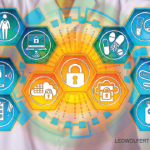Have you ever wondered why you are able to get up-to-the-minute sports scores, but it could take weeks to receive potentially lifesaving drug safety alerts? (And that is only if your front-office staff is able to separate the “Dear Doctor” letter from junk mail.)
With the Health Care Notification Network (HCNN), launched in late March, waiting for important drug alerts could be a thing of the past. With the new HCNN, practices are no longer at the mercy of various intermediaries and the U.S. Postal Service to receive critical patient safety information. The HCNN can rapidly deliver patient safety, public health emergency, and bioterror information to U.S. physicians via e-mail. This service is free to all licensed U.S. physicians and ensures a more efficient and effective delivery of vital safety information by delivering the alerts directly to those who need them most—physicians, healthcare professionals, and their office staff.
The HCNN, operated by the iHealth Alliance, is the result of a three-year collaboration between U.S. medical society leaders, liability carriers, health plans, consumer advocacy groups, and government and industry leaders. The iHealth Alliance’s mission is to protect patients and providers as healthcare increasingly moves online. Furthermore, the HCNN will be free of advertising and promotion, and will only be used to deliver patient safety alerts.
Why are so many health industry leaders joining in this effort when it will be free of promotional materials? The answer is simple—increased system efficiency and patient safety leads to cost savings. Liability carriers predict that the delivery of product recalls and warnings immediately and directly to the those who prescribe medications—rather than through the traditional paper system that takes weeks and depends on those who sift through clinic mail to get the alerts—will improve patient safety and reduce malpractice claims. This could eventually result in the overall decrease of malpractice insurance premiums, according to an HCNN press release.
Pharmaceutical manufacturers—who currently pay for the U.S. mail–based system—and insurers are also backing the new e-mail–based alert system and encouraging providers to register with the HCNN, because they, too, will benefit from a reduction in adverse drug reactions caused by more timely notification.
For more information about the HCNN, or to sign up for alerts, visit www.hcnn.net or contact Itara Barnes in the ACR’s practice advocacy department at (404) 633-3777, ext. 819, or [email protected].


